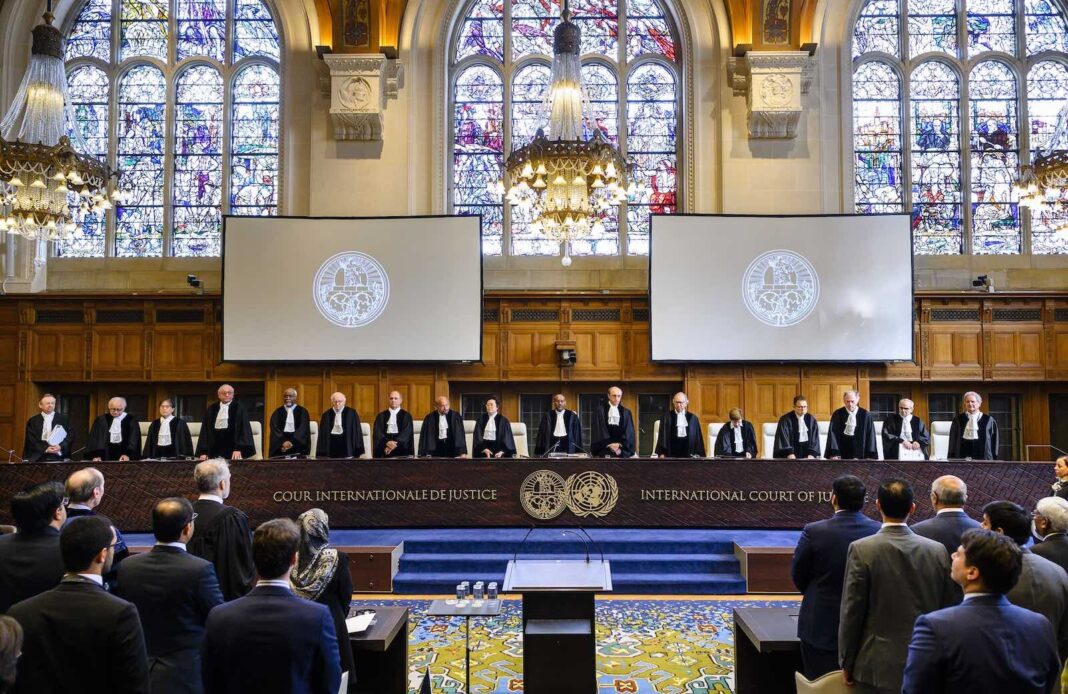The International Court of Justice (ICJ) has just delivered what may be the most consequential legal verdict of our generation—not in the form of a ruling, but through its recent Advisory Opinion on climate change. And while it may not carry direct enforcement power, its reverberations are being felt across courtrooms, parliaments, and boardrooms around the world.
What the ICJ declared—unanimously—is unambiguous:
“climate change is not just a political dilemma or a scientific fact. It is a matter of binding legal obligation”. States that fail to act decisively against climate threats are not only negligent about the looming crisis, but may also be violating international law.
For the first time, a United Nations-backed legal institution has drawn a red line between climate inaction and legal accountability. It has elevated the goal of limiting warming to 1.5°C—a target once dismissed as aspirational—into a legal benchmark that governments must now strive to meet, or risk being held accountable for failure. And in doing so, the ICJ has ushered in a new era of climate governance.
So what did the Court observe and remark?
The Court made it unequivocally clear that the nations are obligated under customary international law, and not just the Paris Agreement. This means that the duty to prevent transboundary environmental harm, the protection of marine biodiversity, and the safeguarding of human rights all converge under a single imperative: Climate Action.
It further mentioned that the States must also regulate the emissions of private actors operating within their territory. Governments that ignore corporate pollution are now on legally shaky ground. According to the ICJ, this failure to regulate may qualify as an “Internationally Wrongful Act.”
The above observation has profound implications for fossil fuel giants and their host nations. It sets the stage for climate litigation of a kind the world has never seen—where entire countries, not just corporations, could be asked to pay reparations for losses and damages resulting from unchecked emissions.
The opinion is a game-changer, and its significance lies not just in its language but in its timing. “We are amid escalating climate disasters: record-breaking heatwaves, collapsing glaciers, and thousands of climate-related lawsuits (over 2,500 globally as of 2024)- The ICJ’s intervention offers what climate diplomacy has often lacked: legal clarity.”
However, in the absence of robust enforcement mechanisms, climate agreements have often suffered from what scholars refer to as the “compliance gap.” The ICJ’s opinion helps close that gap—not with a hammer, but with the weight of legal precedent.
Furthermore, the observation recognises something profoundly humane: the right to a clean, healthy, and sustainable environment is a human right. This reinforces obligations under the Universal Declaration of Human Rights and gives voice to the most vulnerable communities, including those displaced by climate change, indigenous peoples, and future generations.
So what does the opinion mean for INDIA?
For India, the ICJ’s opinion is not a threat—it’s an opportunity. As one of the largest developing economies committed to multilateralism and equity, India now has a stronger legal foundation to:
- Demand climate finance and technology transfer from high emitters,
- Strengthen domestic enforcement through constitutional provisions like Article 21 (Right to Life),
- Elevate India’s leadership in South-South climate diplomacy,
- And defend its interests in future climate negotiations.
Moreover, India’s judiciary—particularly the Supreme Court and National Green Tribunal—can cite this opinion to bolster climate-related rulings. The opinion aligns well with India’s legal traditions that recognise environmental protection as central to fundamental rights.
It is essential to note that the future is not contingent and provides a base for further legal compliance, observations and recommendations. While the ICJ’s opinion is technically non-binding, it is binding in conscience. It will influence treaty interpretations, shape litigation strategies, and alter the calculus of climate diplomacy.
The Court has given humanity what it desperately needs—a moral compass backed by legal precision. The world’s top judges have declared, in unequivocal terms, that climate negligence constitutes a violation of international law. That’s not a suggestion. That’s a signal.
In conclusion, the Advisory Opinion does not just speak to states. It speaks to us all. It highlights that one cannot ignore the rising seas, the burning forests, and the vanishing species, and it is necessary to take note of climate devastation and subsequently its conservation.
The law, at last, has caught up with the science. Now the question is:
“Will politics catch up with the law?”
PS: Image is an Internet Source, exact source unknown.



